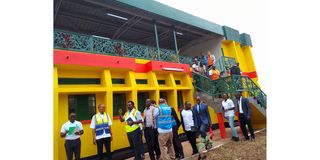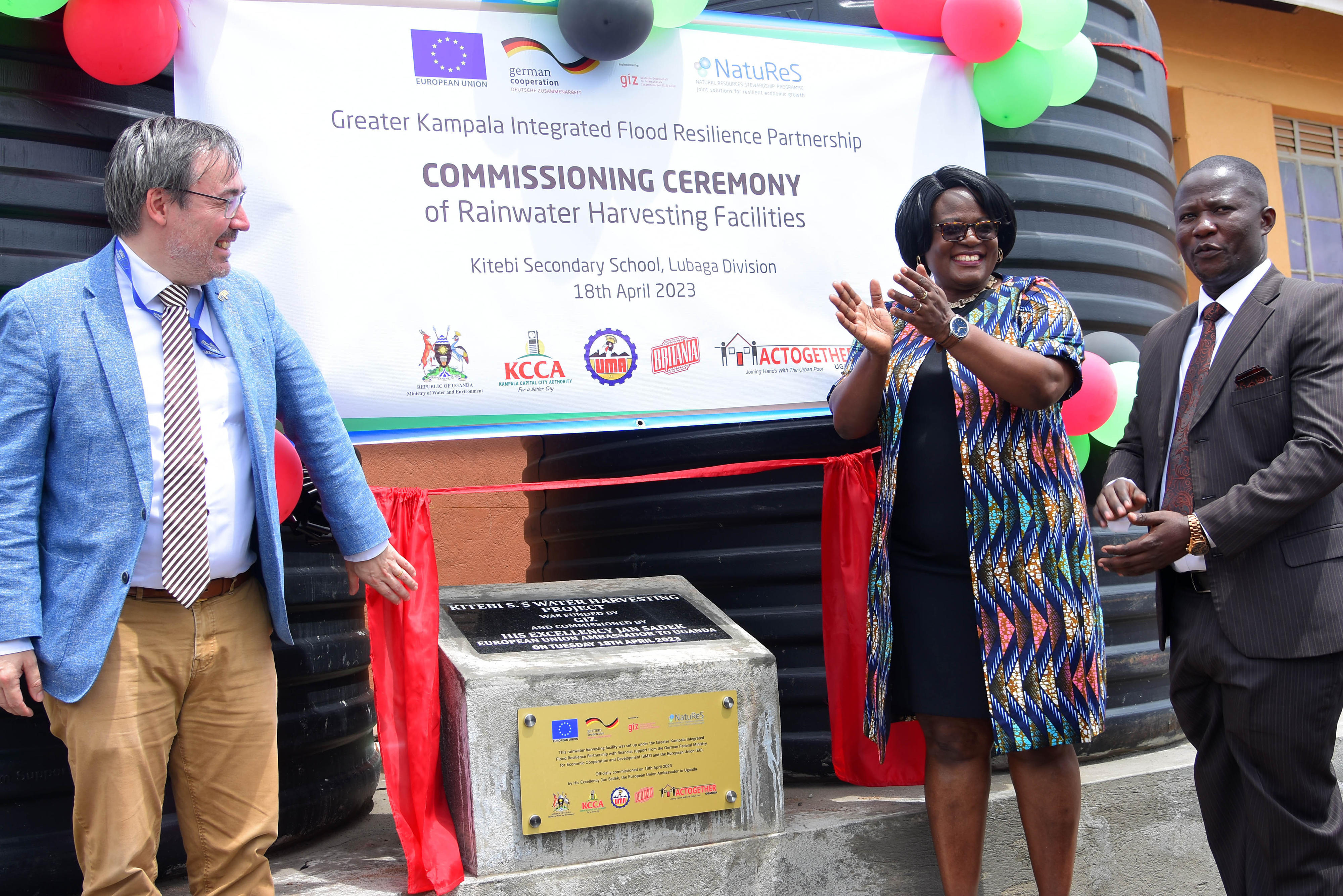Prime
Govt invests Shs117b in Kampala water and sanitation projects

Officials from National Water and Sewerage Corporation together with leaders from Kampala Capital City Authority( KCCA) and Nakawa division touring the sanitation facility that consists of toilets and restaurant space at Kiswa Market in Nakawa Division on April 12th, 2024. PHOTO | SYLIVIA KATUSHABE
What you need to know:
- KCCA Executive Director, Ms Dorothy Kisaka, emphasised the importance of sanitation facilities in markets, schools, hospitals, and public spaces for maintaining a healthy city.
The Ugandan government, through the National Water and Sewerage Corporation (NWSC), has pledged over Shs117.2 billion to improve water and sanitation infrastructure in Kampala.
This initiative falls under the Kampala Water Lake Victoria water and sanitation project package 5B.
According to NWSC Managing Director, Dr Silver Mugisha, the project will involve constructing 64 sanitation facilities across various public locations in Kampala. These include 25 government-aided schools, nine markets, 30 public spaces, police stations, and prisons.
Funding for the project is a combination of grant and loan. KFW Development Bank is providing a grant of approximately Shs48.5 billion, with Agence Française de Développement (AFD) contributing a loan of roughly Shs68.7 billion.
The project aims to enhance water and sanitation access in Kampala's informal settlements. It targets providing safe water to 400,000 residents and sanitation facilities to 250,000 people, including 10,000 students in government schools.
On Friday, the NWSC handed over eight completed sanitation facilities to the Kampala Capital City Authority (KCCA). These facilities are located at Kasanga Primary School, Police Primary School Kibuli, Mbuya Church of Uganda Primary School, Muntundwe, St. Paul Primary School Nsambya, Lubiri Primary School Mutundwe, Kiswa Market, and Centenary Park.
“We are very happy with this collaboration we have with the KCCA. It is a very good one, and I can report to you that we have not made any sort of friction on this. We are very happy with the area member of parliament who has been working very closely with us in implementing these projects, and not only these projects, but other projects as well,” Dr Mugisha said.
KCCA Executive Director, Ms Dorothy Kisaka, emphasised the importance of sanitation facilities in markets, schools, hospitals, and public spaces for maintaining a healthy city.
“We have a vision that says we are building a vibrant, attractive, and sustainable city. And our three key areas where people gather that need focused sanitation are our schools, our hospitals, and our markets,” Ms Kisaka said.
She urged community members to take responsibility for maintaining the newly constructed facilities.
“These toilets should be well looked after, well maintained and there should be a mechanism of ensuring that these facilities continue to look good or even better in the next five years and beyond,” she said.
Mr Paul Mugambe, Nakawa Division Mayor, said that the facilities will help to improve the health of the people in communities.
“I must say that these facilities will make a great change and a great impact to our communities here, both directly and indirectly. We've been having a disease burden of typhoid and other diseases related to sanitation, Mr Mugambe said.
“We have no doubt that we are chasing them away and their prevalence is going to be very low moving forward,” he added.




